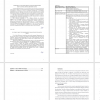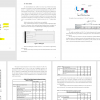Тема: THE INFLUENCE OF INTERNATIONAL SOCIAL NETWORK BAN ON CONSUMERS’ ATTITUDE TO RUSSIAN SOCIAL MEDIA: CASE OF VK
Закажите новую по вашим требованиям
Представленный материал является образцом учебного исследования, примером структуры и содержания учебного исследования по заявленной теме. Размещён исключительно в информационных и ознакомительных целях.
Workspay.ru оказывает информационные услуги по сбору, обработке и структурированию материалов в соответствии с требованиями заказчика.
Размещение материала не означает публикацию произведения впервые и не предполагает передачу исключительных авторских прав третьим лицам.
Материал не предназначен для дословной сдачи в образовательные организации и требует самостоятельной переработки с соблюдением законодательства Российской Федерации об авторском праве и принципов академической добросовестности.
Авторские права на исходные материалы принадлежат их законным правообладателям. В случае возникновения вопросов, связанных с размещённым материалом, просим направить обращение через форму обратной связи.
📋 Содержание
ABSTRACT 3
АННОТАЦИЯ 4
Introduction 7
Chapter 1. THEORETICAL ANALYSIS OF ZENNIALS PERCEPTION OF SOCIAL
NETWORKS AFTER THE BAN 10
1.1. Emotional attachments towards social networking sites 10
1.2. Generations Theory 12
1.2.1. Peculiarities of generation Y in social networking 12
1.2.2. Peculiarities of generation Z in social networking 13
1.2.3. Peculiarities of borderline generation in social networking 14
1.3. Current social media landscape in Russia 16
1.4. Disconnection from social network worldwide 19
1.5. Determination of the research model 23
Summary of the chapter 1 28
Chapter 2. RESEARCH DESIGN DEVELOPMENT AND DATA COLLECTION
PROCESS DESCRIPTION. 29
2.1. Determination of research design 29
2.2. Determination of data collection methods 30
2.3. Qualitative study 31
2.4. Quantitative study 41
2.5. Data analysis method 44
Summary of Chapter 2 45
Chapter 3. DATA ANALYSIS AND PROFILES DEVELOPMENT 47
3.1. Measurement Model 47
3.2. Structural Model 52
3.3. Cluster Analysis 58
3.4. Users’ profiles development 60
3.5. Discussions and theoretical contribution 72
3.6. Managerial implication 74
3.7. Limitations and future research directions 77
Summary of Chapter 3 79
Conclusion 80
References 82
Appendixes 90
Appendix 1. The main milestones in the development of VK 90
Appendix 2. Study 1. In-depth interview design 91
Appendix 3. Study 1. In-depth interview results 95
Appendix 4. Study 2. Online survey design 98
Appendix 5. Main characteristics of 3 clusters 125
📖 Введение
Topic relevance
The ban on some social networks has created an unprecedented situation, forcing the Russian internet audience to search for new platforms for communication, blogging, and earning from advertising. This influx of authors and audiences to new platforms has created a need to understand how the change in attitude towards social networks in Russia contributes to consumers staying on or shifting to alternative social networks. Moreover, businesses faced the challenges as they needed to satisfy the desires of shifted audiences.
The social network VK was chosen as the main alternative social network for study due to its boom in growth after the ban of several social media networks. The number of VK users has grown from 46 million to 50 million between January and July 2022, making it relevant to study the influence of International Social Network Ban on Consumers’ Attitude to Russian social media based on VK platform. Additionally, the study focuses on Zennials, as they are the main consumers and users of social networking sites.
The novelty of this research is demonstrated by the absence of similar studies on this topic after the restrictions appeared in the media industry. Thus, this study aims to address this gap and create a foundation for other academic researchers studying consumers' behavior and changes in attitude to social networks in Russia after the restrictions on several social networks.
The research will allow content producers, add-owners, bloggers, and companies to improve their offerings on the VK platform as the main alternative to banned social networks. All these factors demonstrate that the chosen topic is relevant to the current situation in the Russian market of social networks.
Research gap and problem statement
There is a limited understanding of how Russian consumers met the restrictions of some social networks. In addition, there is not so much research that studies this phenomenon. The research problem that is a part of the current research gap can be described as the following question: “How attitude towards the international social networks ban influenced consumer behavior on VK platform?” Moreover, satisfaction with and intensity of engagement with existing platforms were also influenced by the current situation. Such conditions facilitate the necessity to know how to communicate with end-users on the main alternative domestic social network. This master's thesis is aimed at answering the research problem mentioned above.
Research questions
In order to address the research problem, the following research questions were formulated:
1. What are the typical behavioural patterns (emotional reaction strategies) of Zennials after the block of several social media?
2. How Zennials’ emotional reaction to the international social networks ban influenced the attitude towards VK, intensity of engagement with VK, satisfaction with VK?
The object of this master's thesis is Russian Zennials who use social networks. The subject is the change in attitude to social networks in Russia after restrictions based on the VK platform.
...
✅ Заключение
In the first chapter, an extensive literature review was conducted, covering topics such as emotional attachment to social networking sites, and characteristics of Generation Y, Generation Z, and Zennials. In addition, the current social media landscape in Russia and worldwide social network disconnection were analyzed. The primary theoretical fundamentals were identified, and a research model was established.
In the second chapter, research design and determination of data collection methods were described. Guides and an online questionnaire were developed based on the literature review for each study. Qualitative research included in-depth interviews to explore the respondents' emotional reaction strategies towards the ban of some popular social networking platforms and reasons to stay or switch to another social network after the ban. A quantitative survey was also conducted, collecting data from 254 respondents. All data was prepared for further analysis, and the results of the qualitative study were also discussed.
In the third chapter, the data collected during the quantitative study was analyzed using SPSS and SMART-PLS 4 software. Measurement and Structural Models were created, and cluster analysis was applied. The significance of the framework developed was confirmed according to the results of the Measurement and Structural Models. The cluster analysis determined the profiles of the audience under the study. Although non-VK users were also analyzed, the small sample size and unwillingness of this group of respondents to return to VK prevented their inclusion in the profile design.
The study's findings indicate that among the borderline generation in the media environment, three different groups of users are identified based on technographic characteristics, attitude towards VK, intensity of engagement with VK, and satisfaction with VK.
The research provides recommendations to attract more audience on VK and improve communication and engagement on this social media platform, as well as a theoretical contribution to the existing literature. Finally, the limitations of the study and potential areas of improvements for future research were taken into account.





